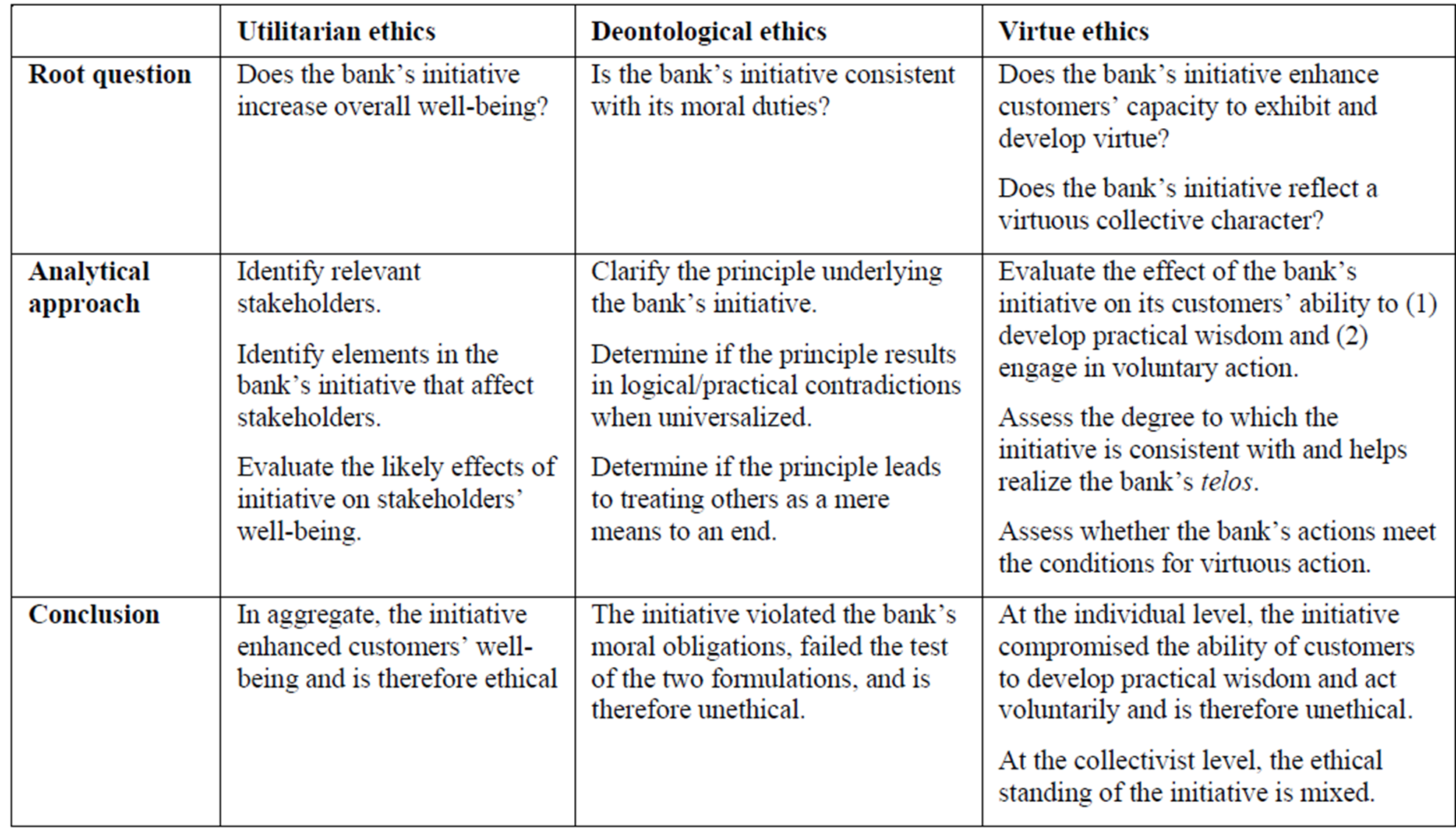Application of ethical theories
Aristotle's Ethics
- Good is that at which all things aims
- The proper function or excellence of a things is its arete (virtue)
- The human arete or virtue is activity of the soul in accordance with virtue (over a lifetime)
Happiness: The Self-sufficient end
- Most of the ends (goals) we seek are instrumental steps towards some ultimate goal.
- Aristotle identifies happiness as that which we seek as a goal that is an end in itself
- Happiness comes from developing a good character
- A good character comes from the development of good habits
Human Virtue
- It can not be simply living and growing - trees do that as well
- It can not be related to characteristics we share with animals
- The quality that seems distinctively human is the use of reason.
- Humans can have two kinds of virtue
- Intellectual Virtues - Relate to our professions
- Moral Virtues - Common to all humans
Good Character
- Virtuous thoughts lead to good acts
- Virtuous acts (following the mean) can lead to good habits
- Good habits make for a good character
- A good character can be happy
Deontology
| Strengths | Weaknesses |
|---|---|
| Clear moral guidelines | Rigidity and lack of flexibility |
| Respect for human dignity | Lack of attention to context |
| Accountability and moral responsibility | Lack of attention to outcomes |
| Universalizability and thus consistency | Possible conflicting duties |
| Applicability in global, multicultural contexts |
Teleology
| Strengths | Weaknesses |
|---|---|
| Focus on practical outcomes | Difficulties of measuring consequences |
| Flexibility and adaptability | Can be justified to harm minorities |
| Innovation and progress orientation | Ignores intrinsic rights and duties (human rights) |
| Promotes collective wellbeing | Short term versus long term consequences |
| Decision making under uncertainty | Definition of wellbeing, utility, pain and pleasure |
Virtue Ethics
| Strengths | Weaknesses |
|---|---|
| Focus on moral character and integrity | Lacks specific guidelines |
| Encourages long-term thinking | Virtues can be interpreted differently in different contexts |
| Promotes human-centric tech development | Focus on individuals, not sociotechnical ecosystems |
| Adaptable to complex situations | Can be slow to respond |
| Difficult to apply to organisations |
Application of ethical theories to cases


Therac 25
- Machine which killed people by mistake
- Can rectify ethical concerns by: legislation, regulation, professionalism, standards and social pressure